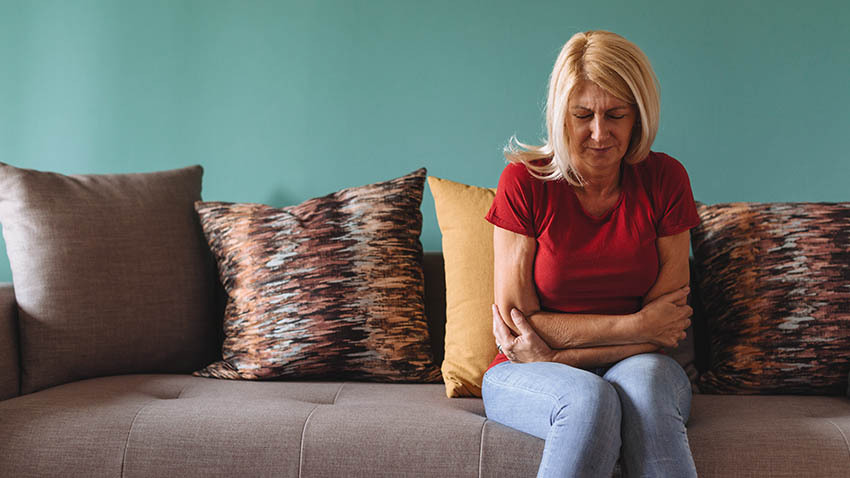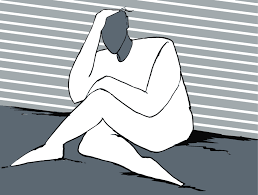Coronavirus Quarantine Anxiety & Your Mental Health
Navigating COVID-19 Quarantine – Stress, Anxiety & You

Social Upheaval
In January 2020 the World Health Organization (WHO) declared the the coronavirus disease, COVID-19, a Public Health Emergency of International Concern. Within two months it made the assessment that it could be characterized as a pandemic.
Has the coronavirus outbreak thrust you into a morass of colliding feelings as a result of the COVID-19 quarantine? Are you visited by strange bedfellows of disorientation, uncertainty and anxiety? This global pandemic has turned our world upside down. New Yorkers are reminded of the need to make the WE a top priority. In order to do this successfully we must move through the anxiety and tame the virus rather than have it overpower us. Succinctly stated the guidelines are rather simple-wear a mask, maintain social distancing when out in public, and isolate at home as the numbers and the science dictate.
While this sounds good, it may feel like a tall order, wouldn’t you say? We are accustomed to being connected by virtue of sharing social and familial experiences, work-related projects and casual exchanges. Many of our communities remain connected psychologically through religious, academic or philanthropic activities. Sometimes merely walking through your neighborhood will bring you within close proximity of familiar faces. These everyday interactions which we generally take for granted often engender feelings of comfort, familiarity and connectedness. The familiar cues we relied upon as a sign of recognition are no longer evident when we are in quarantine. Since the smiles of greetings are no longer visible we must look to one another’s eyes for that smile. All of this requires adjustments on many levels; sometimes it is easier than others. This social distancing impacts on latent as well as newly surfacing mental health issues and health problems.
Have you found yourself staring at someone whom you know only to snap into a sudden recognition of who it is? The masks can conceal the identity of another. Have you said “Hi! How’s it going?” only to realize your voice was muffled by the mask and this person never realized you were greeting him? Have the Zoom business meetings, break-out sessions, social media video chats and happy hours left you briefly distracted, only to return abruptly to the gnawing feeling of emptiness or being adrift? While you may be alone on a literal level, you are not alone in these feelings and experiences.
It is far too easy to lose sight of what needs be done by the WE, which is, all of us working together, as we venture out into a world that seems only remotely familiar. Hal Harvey, the environmental innovator, recently signed off an e-mail by writing “Respect science, respect nature, respect each other.” Regardless of where you may fall on the political, social, environmental or philosophical spectrum, this might be a basic way for us to regroup as a society, redirect our potential for positivity and generate goal-oriented growth for one another, as well as for ourselves, through constructive dialogue.
“Respect” does not mean to agree, but rather to “give due regard for the feelings, wishes, rights or traditions of others.” Growth does not come from walking blithely through life. Instead it is the benefit that comes from a proactive response to the challenges, setbacks and disappointments that come into your life. These experiences provide us the opportunities to confront our fears and to use them to engender empathy, compassion and creative problem-solving.
Emotional Challenges

Have you had a difficult time focusing on topics that up until now you have been razor sharp in your approach? Has any semblance of clarity on your mounting business, familial and financial pressures been lost in what feels like a cloud of white noise? Are you feeling as though you are having a difficult time retrieving the words to express your feelings? Does it seem as though life and important concepts are slipping through your fingers? If you see a number of “Yes” answers to these questions you may be struggling with a post-traumatic stress disorder. At these times we often hear in the distance the refrain from civic and religious leaders. It is based on the application of current data analyses of the variables surrounding this blight on our world. This refrain calls upon us to focus on the WE, rather than the ME, to bring the COVID-19 pandemic in check.
We know it can be challenging to implement the COVID-19 guidelines and recommendations presented by the medical professionals and government leaders. Have you noticed that, despite your best efforts, you have felt compromised by your reaction patterns to unexpected situations? Have you felt catapulted into a world of acutely different social exigencies when you thought you were just beginning to get a handle on things? While this is not a place any of us wanted to be in, it is where we all are. I ask you to do what you can to remember that you are in good company and together we can generate change. This change can be for the better, this change can be a way of us helping one another, and this change can make the world a better place for the young.
Overcoming Social Isolation
 You are not alone, but rather in good company with many good people! This “beast,” as the frontline workers refer to the coronavirus, has shaken the very foundation of our world. What we thought of as rock solid and stable appear more precarious and unpredictable than ever. Even the places where we would go to for solace and support are no longer available to us. Our churches, synagogues, beaches or mountain trails and best friends are off limits at times depending upon the statistics.
You are not alone, but rather in good company with many good people! This “beast,” as the frontline workers refer to the coronavirus, has shaken the very foundation of our world. What we thought of as rock solid and stable appear more precarious and unpredictable than ever. Even the places where we would go to for solace and support are no longer available to us. Our churches, synagogues, beaches or mountain trails and best friends are off limits at times depending upon the statistics.
Remember that the coronavirus is driving the directives and mandates. However, if we recognize this fact we are in a much better position to have more control over its spread and subsequent impact on our personal interactions, finances, communities and economy.
With the goal of keeping one another safe, these restrictions simultaneously keep our familiar places and people away from us. Most know how especially nurturing and stabilizing it is to stay connected through whatever means our life circumstances permit. For some the phone, cell or landline, is the modality of choice; for others the comfortable connections come through FACETIME or ZOOM. What is of primary importance is that we remain connected to one another. Our faces, feelings, histories and hearts are the glue that bind us together. In order to move beyond the ME toward nurturing the WE, most of us would benefit from tackling our individual “beast.”
Overpowering Your Emotional Beast
Are you struggling with nagging questions regarding the challenges you thought were addressed successfully? Are you worried that perhaps they were abandoned abruptly? It’s understandable if you find yourself vacillating between feeling numb and frozen and then confused and lost. Regardless of where your feelings fall on this continuum of emotions, it is important for you to recognize that it is OK to feel whatever you are feeling. There is no right or wrong when it comes to feelings. However, what you do with these feelings can be right or wrong, problem-solving or problem creating, anxiety producing or anxiety diluting.
 While we are confronted by dizzying questions surrounding this pandemic, many important decisions need to be held in abeyance. I’d like to ask you to be kind to yourself, as well as those with whom you interact. Do your best to be gentle and to work with what you have right now, whether it is with family members you are interacting with in person, with coworkers on a teleconference call or with friends on a video chat. Remember to limit your time on social media and use it only to the extent that it helps you, rather than leaves you feelings more isolated.
While we are confronted by dizzying questions surrounding this pandemic, many important decisions need to be held in abeyance. I’d like to ask you to be kind to yourself, as well as those with whom you interact. Do your best to be gentle and to work with what you have right now, whether it is with family members you are interacting with in person, with coworkers on a teleconference call or with friends on a video chat. Remember to limit your time on social media and use it only to the extent that it helps you, rather than leaves you feelings more isolated.
Your strength and resilience will resurface or unfold anew, but you need to give yourself time to digest what is occurring. While much may feel static there are ample opportunities for you to engage in some probably long overdue opportunities to take care of yourself. Since time has become elasticized in many ways why not use it to reexamine your values and look at what drives you to push forward with the tenacity and focus that is yours. Are you moving in the right direction? Are you where you want to be?
As you look back upon your life’s trajectory are these variables in harmony? Have you lost your way in this journey we call life? Since you are very limited in what you can do and where you can go, why not use this time to indulge yourself and your musings? You might be surprised about what you learn and what it suggests about the choices you have made as you go forward in life and about the people you have embraced in your life.
Have you found yourself attempting to figure out what just happened or why it occurred? Remember, it is easy to feel confused, anxious, depressed, frightened or challenged in a matter of minutes. Anxiety rears its menacing head in a wide variety of circumstances. Becoming aware of the rush of feelings is the beginning of learning how to identify them.
During this time of the quarantine, turn your attention to what fluctuations in your internal, physical manifestations are surfacing. See if you can identify what emotions are beginning to percolate up at this time. What kinds of people seem to trigger these emotions. This will help you to develop your own early warning system as you gain insight into your more subtle reactions to other people and to life events. Over time this will help you to develop new ways of dealing with these and similar circumstances and to develop new problems-solving skills as a result of the challenges. Sounds like turning a difficult situation into one that optimally is growth producing, wouldn’t you say. I will grant you that it is often easier said than done.
What would you think if I said that anxiety can provide the key to resolving issues that have blocked your effective functioning throughout the course of your life? We grow not from the easy times, but rather from those situations where we are challenged and often catapulted into the need for new ways of coping. While none of us wanted this pandemic to come upon us, our country or our world, this is where we are.
Clearly the coronavirus pandemic did not impact every continent by expanding in a vacuum. So now let’s do all we can to bring our lives, families, other people and the world to a more balanced place. You can take better care of yourself by working on your individual strengths and resistances to change, i.e. the ME. Thus, we can effectively lock arms in productive, responsible and grounded living that needs to be the core of the WE.
Nagging Questions-the COVID-19 Quarantine & Your Mental Health
 How can you learn to take care of yourself during so much uncertainty on every level? How can you use this time of tremendous change, challenges and the forming of a New Normal to improve the quality of your life? How do you get over the fact that you do not want to adapt to this New Normal, since you were content just as things were? You may find yourself musing as to how to get back to that time, even in some small ways. However, this thought can be very anxiety-producing. While being alone and feeling lonely it at times can be helpful to remind yourself that many people from all walks of life are experiencing similar feelings. While each person’s experience is unique in many ways there is a commonality of feelings among us.
How can you learn to take care of yourself during so much uncertainty on every level? How can you use this time of tremendous change, challenges and the forming of a New Normal to improve the quality of your life? How do you get over the fact that you do not want to adapt to this New Normal, since you were content just as things were? You may find yourself musing as to how to get back to that time, even in some small ways. However, this thought can be very anxiety-producing. While being alone and feeling lonely it at times can be helpful to remind yourself that many people from all walks of life are experiencing similar feelings. While each person’s experience is unique in many ways there is a commonality of feelings among us.
Laurie Garrett, the epidemiologist who wrote THE COMING PLAGUE, said in an interview that our world five years hence will in no way resemble the world we are living in today. The mere thought of this probability can be most disconcerting, jarring and probably anxiety-producing.
How can you use your experiences with the coronavirus to help you tame the beast of anxiety that is induced in you all too often? Think about the concepts that I introduced you to in the section Overcoming Your Emotional Beast. Keep in mind that these suggestions are akin only to the very briefest of outlines. To use these recommendations requires commitment and time on your part. Although this may sound like a difficult undertaking, remember that there is always a beginning for what you can do to take care of yourself. People have done this in the past; you can do it today!
You can improve the quality of your mental health. How can you change your manner of interacting with other people in order to improve your relationships with your partner, spouse, family members or coworkers? The answers lie in your learning to take better and perhaps very different care of your internal terrain, your emotions and your interpersonal relations. Your emotional, spiritual and interpersonal growth can contribute to a healthier, kinder world for each of us to live in and contribute to. It’s all about mental health!
Does this sound like something you could benefit from? Are you thinking about the need for and necessity of processing life in a more constructive way? If it does, feel free to call me at (516) 627-1145 to schedule a complimentary consultation. At this time you can present your concerns, we can take a look at them, and you can have your questions answered.
Check back with us to read more about the COVID-19 pandemic and related mental health concerns.
Dr. Maryann B Schaefer
Ph.D. – Counseling, Concentration in Psychology
NYS Licensed Mental Health Counselor
Fellow of American Psychotherapy Association
Phone: (516) 627-1145
Email: drmaryannschaefer@gmail.com
5 Travers Street Manhasset, NY 11030
Office Hours: By appointment only.



